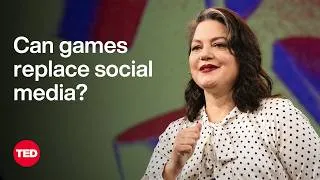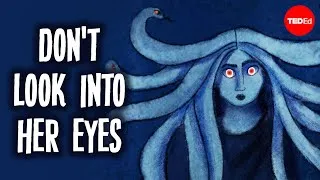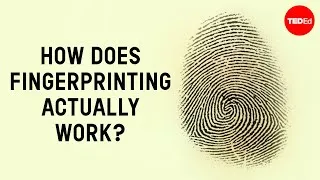请双击下面的英文字幕来播放视频。
00:00
Transcriber: tom carter
Reviewer: Bedirhan Cinar
0
0
7000
翻译人员: Helen Gao
校对人员: Cissy Yun
00:15
Optics, or the enhancement of our natural vision,
1
15601
3701
光学,或者说是我们自然视觉的增强
00:19
has been one of the biggest catalysts for science over the past 500 years,
2
19302
4416
曾经是过去500年里自然科学最大的催化剂
00:23
Interestingly, it wasn't scientific interest, but more practical matters that led to the initial advancements in optics,
3
23718
7183
有趣的是,引导光学最初发展的不是科学兴趣,
而更多的是实际问题。
00:30
starting around 1440 when Johannes Gutenberg invented his printing press.
4
30901
5000
始于1440年,当约翰内斯·古腾堡发明印刷机之时
00:35
In short order, books, which had been a rarity,
5
35901
3334
在彼时还很珍贵的书,
00:39
were now becoming a widespread phenomenon.
6
39235
2652
马上开始变得十分普遍。
00:41
All that new reading material meant more knowledge was circulating,
7
41887
3548
更多的阅读材料意味着更多的知识流通
00:45
but it also meant that more people were straining their eyes,
8
45435
3433
但也意味着更多的人开始过度用眼,
00:48
likely as they read by candlelight.
9
48868
2650
很可能由于他们借烛光阅读。
00:51
And while spectacles had been invented in Italy around 1286,
10
51518
3750
在约1286年,当眼镜在意大利诞生后,
00:55
the need for reading glasses increased substantially.
11
55268
4034
对近视眼镜的需求急剧增加。
00:59
Now that people could use lenses to see things more clearly,
12
59302
3284
现在人们可以透过镜片看得更清晰,
01:02
they started wondering if vision could be enhanced to see things the human eye couldn't perceive by its own devices.
13
62586
6781
他们也开始考虑视野是否可以用装置进行增强,
达到肉眼无法企及的程度。
01:09
Robert Hooke pursued microscopy, and 1665 he published his findings of worlds inside worlds,
14
69367
7084
罗伯特·胡克研究的是显微术,
1665年他发表了微观世界的发现,
01:16
which he called "cells" in the book "Micrographia."
15
76451
4598
并在其著作《显微图谱》中称为“细胞(cell)”
01:21
At the other end of the spectrum,
16
81049
2102
另一方面,
01:23
Galileo innovated with telescopic lenses,
17
83151
2684
伽利略发明了望远镜,
01:25
and in 1609, he had refined a telescope until he had an instrument powerful enough to see distant objects in the sky
18
85835
7516
到1609年,他不断改进该望远镜,
直到装备强大到能看见空中较远的物体
01:33
with an accuracy no one had before him.
19
93351
4084
且精度是前人从未达到的。
01:37
He found that the moon had craters and mountains,
20
97435
2381
他发现月球上有环形山和山脉
01:39
that Jupiter had moons of its own, and the whole system governing the earth and space was brought into question.
21
99816
7335
木星带有卫星,
且整个地球和太空系统都受到质疑。
01:47
Not everyone was thrilled with all the things Galileo saw though.
22
107151
3401
但并不是所有人对于伽利略的发现都兴奋不已。
01:50
For instance, it was taught at the time that the moon was a perfectly smooth sphere.
23
110552
4999
比如,在那时,月球被认为是一个非常光滑的球体
01:55
Yet here was visual proof that was awfully hard to discount.
24
115551
5184
而眼前的证据也难以忽视。
02:00
Upon finding moons around Jupiter, he also verified what Johannes Kepler had surmised:
25
120735
6832
除了发现木星带有卫星以外,
他同时验证了约翰尼斯·开普勒的猜测:
02:07
that the earth was not the center of the universe,
26
127567
2884
地球并非宇宙中心,
02:10
dispelling another central dogma of Galileo's day.
27
130451
3700
破除了伽利略所在时期的另一中心教条。
02:14
Then almost exactly a year after Galileo died,
28
134151
2850
伽利略去世后一年,
02:17
Isaac Newton was born.
29
137001
1665
艾萨克·牛顿诞生了。
02:18
A lot that had been unknown was visible by now,
30
138666
3784
过去的许多未知,现在均清晰可见;
02:22
but much of it was simply the foundation for further questions.
31
142450
4650
但其中很多也为之后的问题奠定了基础。
02:27
What was light anyway? And color, for that matter?
32
147100
4036
什么是光?还有颜色,又是什么?
02:31
What were the laws that governed the earth, and the heavens?
33
151136
3132
支配地球和天体的法则又是什么?
02:34
And could we capture them through keen observation?
34
154268
3284
我们是否能通过敏锐的观察捕捉到它们?
02:37
Newton experimented extensively with optics,
35
157552
2816
牛顿做了广泛的光学实验,
02:40
and came to understand light as something of substance,
36
160368
2998
了解到光是一种物质,
02:43
and colors as components of light at different frequencies.
37
163366
4353
而颜色是不同频率的发光元件。
02:47
Before Newton, people widely believed that the color was due to different amounts of light,
38
167719
5798
牛顿之前,人们普遍认为颜色是由于光量的不同而产生的
02:53
with red being lots of light, and blue being mostly dark.
39
173517
3720
红色光量大,而蓝色则大部分是暗的。
02:57
Newton's prism experiments showed that white light could not only be broken into its component colors with one prism,
40
177237
6747
牛顿的棱镜实验显示,
白光不仅能通过第一个棱镜被分成不同色彩元件,
03:03
but that a second lens could recompose those colors back into white light again,
41
183984
4801
第二块棱镜能将颜色重组回白光,
03:08
thus showing that color was a matter of light's refraction rather than how light or dark it was.
42
188785
5216
因此说明颜色是光的折射,而与亮度无关。
03:14
Newton's studies of optics led to the development of the reflecting telescope.
43
194001
4449
牛顿的光学研究带来了反射式望远镜的发展。
03:18
This, together with his study of planetary motion, led to his theory of gravitation,
44
198450
5084
加上他对行星运动的研究,引出了他的万有引力定律。
03:23
one of the world's greatest examples of learning to see something invisible
45
203534
4650
世上最伟大的实例之一:要了解不可见的事物,
03:28
by observing its effect on things that are visible.
46
208184
3217
可以通过观察其对可见事物的影响。
03:31
So fast forward a few hundred years, and here we stand.
47
211401
3651
让我们快进几百年,到现在。
03:35
We've evolved from a single lens to optics that reveal the birth of a star in another galaxy,
48
215052
5648
光学从单镜头进化到可观察银河系一个新星诞生,
03:40
or a child developing in the womb,
49
220700
2518
或婴儿在子宫中成长,
03:43
or an electron whirling around an atom.
50
223218
2933
或一个电子围绕着原子运动。
03:46
At a time when so much is visible, how we see the world around us matters even more than what we see.
51
226151
7800
在很多事物均可见的今天,
我们如何看待这个世界比我们实际看到的更重要。
03:53
Will we see a world where everything important has already been discovered?
52
233951
4900
我们将看到一个所有重要事物均已被发现的世界吗?
03:58
Or will we see one in which yesterday's discoveries are but a doorway to the breakthroughs of tomorrow?
53
238851
7165
或我们会看到昨天的发现不过是明日突破的入口的世界?
New videos
关于本网站
这个网站将向你介绍对学习英语有用的YouTube视频。你将看到来自世界各地的一流教师教授的英语课程。双击每个视频页面上显示的英文字幕,即可从那里播放视频。字幕会随着视频的播放而同步滚动。如果你有任何意见或要求,请使用此联系表与我们联系。







